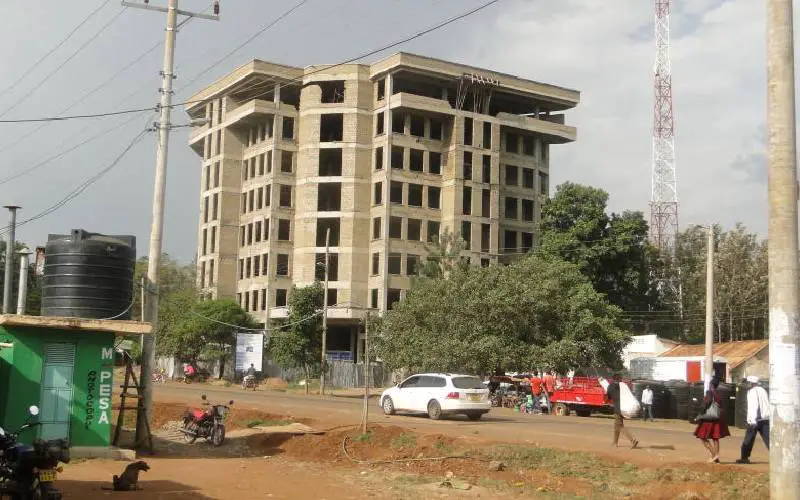Imagine discovering a hidden gem tucked away in the heart of Kenya’s stunning landscapes – that’s Bondo Town for you! This charming destination is a vibrant and friendly town, boasting a unique blend of traditional African culture and modern-day allure. From its bustling markets filled with colorful textiles and fresh produce to its breathtaking natural beauty, Bondo Town has something to captivate every visitor. Whether you’re seeking an adventurous getaway, a cultural immersion, or simply a peaceful retreat, Bondo Town is ready to welcome you with open arms. Get ready to experience the magic of this delightful town firsthand!
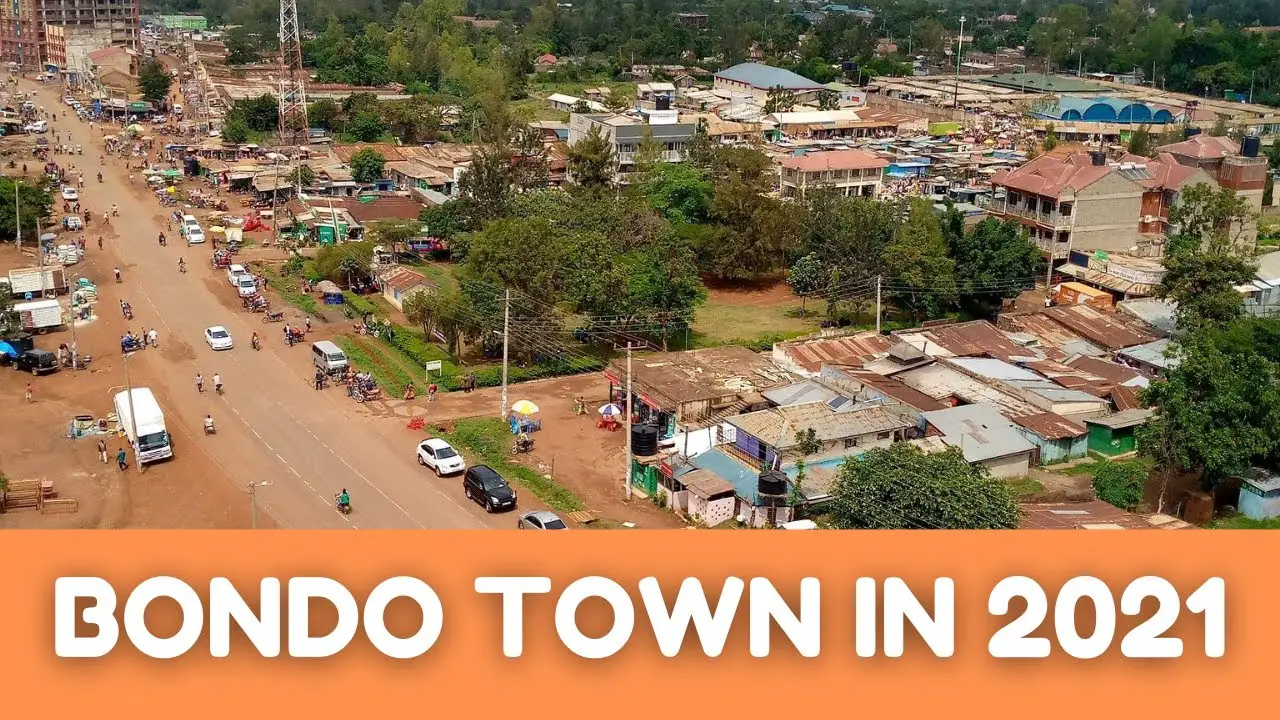
Location of Bondo Town
Geographical location
Bondo Town is located in the western part of Kenya, specifically in the Siaya County. Situated near the shores of Lake Victoria, it lies approximately 35 kilometers northeast of Kisumu, the closest major city. The town is surrounded by lush greenery, with rolling hills and fertile plains providing a picturesque backdrop for its residents and visitors.
Closest major city
The closest major city to Bondo Town is Kisumu, which is the third-largest city in Kenya. Kisumu, located on the eastern shore of Lake Victoria, is an important economic and cultural hub in the region. It offers a wide range of amenities and services, including shopping centers, hospitals, and educational institutions. Bondo Town benefits from its proximity to Kisumu, as it allows for easy access to additional resources and opportunities.
Climate
Bondo Town experiences a tropical climate, characterized by two distinct seasons – the rainy season and the dry season. The rainy season typically occurs between April and June, with occasional showers extending into July. This period brings much-needed rainfall to support agriculture in the region. The dry season, on the other hand, lasts from December to March, during which the weather is hot and relatively dry. The town enjoys fairly consistent temperatures throughout the year, with average highs reaching around 28 degrees Celsius (82 degrees Fahrenheit).
History of Bondo Town
Early settlements
Bondo Town has a rich history that dates back centuries. The area was originally inhabited by the Luo community, one of the major ethnic groups in Kenya. The Luo people established settlements along the shores of Lake Victoria, relying on fishing, agriculture, and livestock rearing for their livelihoods. These early settlements laid the foundation for the development and growth of Bondo Town.
Colonial era
During the colonial era, Bondo Town, like the rest of Kenya, fell under British rule. The arrival of the British brought significant changes to the region, as they introduced new administrative systems and infrastructure. Roads, schools, and healthcare facilities were established, improving the quality of life for the local population. However, this period also witnessed the exploitation of natural resources and the displacement of some communities, resulting in social and economic challenges.
Post-independence
Following Kenya’s independence in 1963, Bondo Town experienced further development and growth. The town became a center for educational and healthcare facilities, providing access to education and medical services for the surrounding communities. Bondo was also the birthplace of the late Professor Wangari Maathai, a renowned environmental activist and Nobel laureate, who played a significant role in advocating for sustainable development and women’s rights in Kenya. Her achievements have left a lasting impact on the town and serve as an inspiration for its residents.
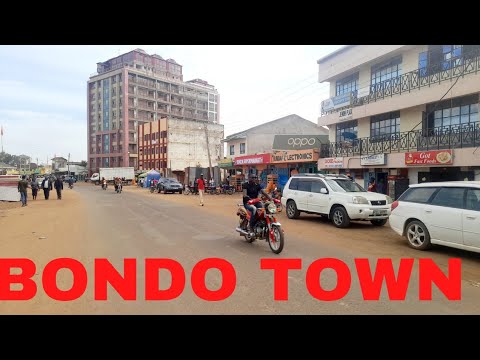
Demographics
Population
Bondo Town has a diverse population, consisting primarily of the Luo ethnic community. The town’s population has been steadily growing, fueled by internal migration from other parts of Kenya seeking economic opportunities and access to services. The latest census recorded a population of approximately 30,000 people, with a relatively equal distribution of males and females.
Ethnic groups
The Luo community is the predominant ethnic group in Bondo Town. However, the town is also home to smaller populations of other ethnic groups, including the Luhya, Abasuba, and Kisii. This diversity contributes to the cultural richness of the town, providing a vibrant mix of traditions, languages, and customs.
Religion
Religion plays an important role in the lives of Bondo Town’s residents. The majority of the population identifies as Christian, with various denominations represented, such as Protestant and Catholic. Additionally, there are smaller populations practicing traditional religions and Islam. Places of worship, including churches, mosques, and temples, can be found throughout the town, catering to the spiritual needs of the community.
Infrastructure
Transportation
Bondo Town is well-connected to the surrounding areas and major cities through an extensive road network. The town is accessible via a number of primary and secondary roads, facilitating travel and transportation of goods and services. Public transportation options, including buses and matatus (minibus taxis), are readily available, offering affordable and convenient means of commuting within Bondo and to nearby towns. Additionally, there is an airstrip, providing air transport options for residents and visitors.
Education
Bondo Town boasts a strong educational infrastructure, with a range of schools and institutions catering to learners of all ages. The town is home to several primary and secondary schools, both public and private, which offer quality education to the local population. Additionally, Bondo is renowned for its higher education institutions, including Bondo University College and Bondo Technical Training Institute, which provide tertiary education and vocational training, respectively.
Healthcare
Access to healthcare services is an essential aspect of any community, and Bondo Town is no exception. The town is equipped with multiple health facilities, ranging from dispensaries and clinics to larger hospitals. These healthcare institutions offer a wide array of medical services, ensuring that residents have access to quality healthcare. Bondo District Hospital, located in the town, serves as a primary referral facility, providing comprehensive medical care to the surrounding communities.
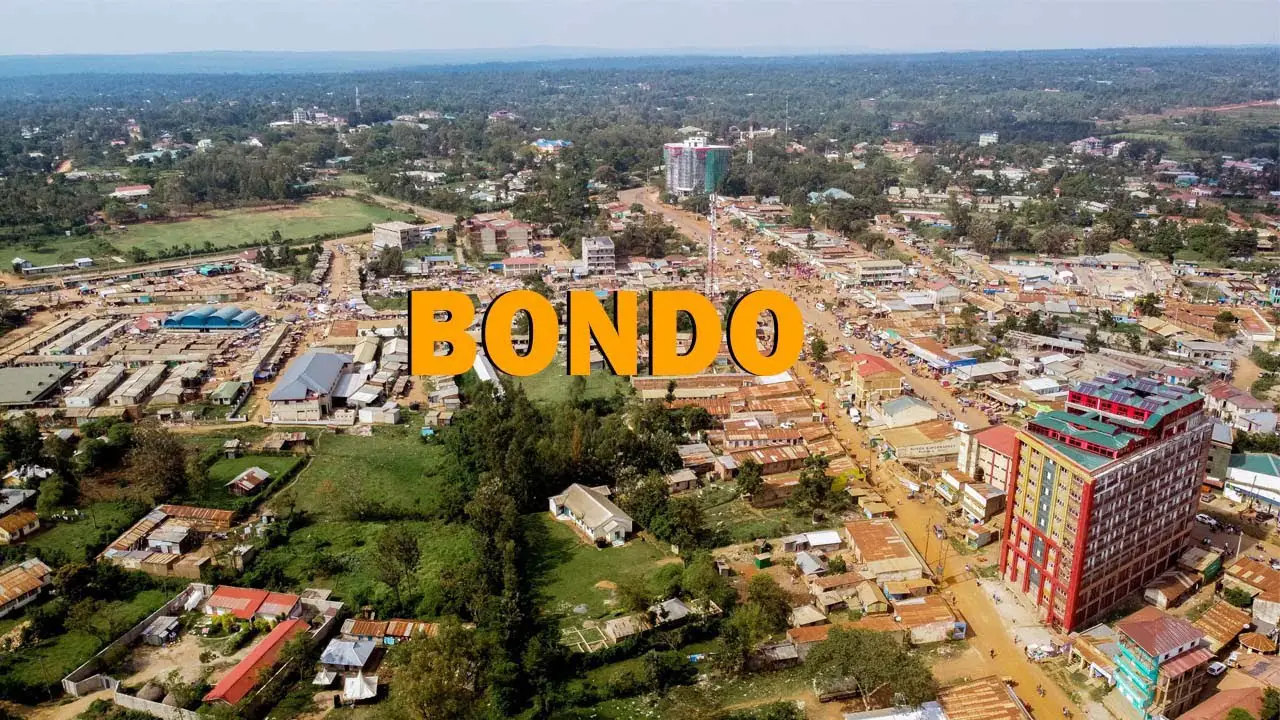
Economy
Agriculture
Agriculture serves as the backbone of Bondo Town’s economy. The region’s fertile soils and favorable climate make it conducive for agricultural activities. The primary crops grown in the area include maize, beans, millet, and sorghum, which form staple foods for the local population. Additionally, Bondo has a thriving horticultural industry, with farmers cultivating fruits and vegetables for both local consumption and export. Livestock rearing, particularly cattle and poultry farming, also contributes significantly to the town’s economy.
Trade and commerce
Bondo Town serves as a commercial center for the surrounding rural areas. The town has a vibrant market, where traders and farmers converge to buy and sell their goods. The market offers a wide range of products, including fresh produce, clothing, household items, and artisanal crafts. Small businesses and shops line the streets, providing residents with a variety of goods and services. The town’s strategic location near Lake Victoria also facilitates fishing activities, contributing to the local economy.
Tourism
Bondo Town is gradually emerging as a tourist destination, attracting visitors who seek to explore its cultural heritage and natural beauty. The town’s traditional practices and festivals offer a unique insight into Luo traditions and customs. Additionally, the surrounding landscapes, including rolling hills and scenic views of Lake Victoria, provide an ideal setting for outdoor enthusiasts. Bondo’s proximity to wildlife reserves, such as Ruma National Park, further enhances its appeal as a potential tourist hub.
Culture and Heritage
Traditional practices
Bondo Town has a rich cultural heritage, shaped by the traditions and customs of the Luo community. Traditional practices, such as music, dance, and storytelling, play a significant role in preserving and celebrating the community’s identity. Traditional ceremonies, such as initiation rites and marriage celebrations, provide opportunities for the community to come together and reinforce their cultural heritage.
Festivals and celebrations
Bondo Town celebrates various festivals and events throughout the year, showcasing the community’s vibrant culture. The Bondo Festival, held annually, is a highlight on the town’s calendar. It features traditional music and dance performances, art exhibitions, and culinary delights. This festival offers residents and visitors a chance to immerse themselves in the local culture and experience the warmth and hospitality of the Bondo community.
Historical landmarks
Bondo Town is home to several historical landmarks that offer insights into its past. Notable landmarks include the birthplace of Professor Wangari Maathai, which has been turned into a museum showcasing her life and achievements. The town also has historical sites that highlight the colonial era, such as old administrative buildings and churches. These landmarks serve as a reminder of the town’s heritage and provide educational opportunities for both locals and tourists.
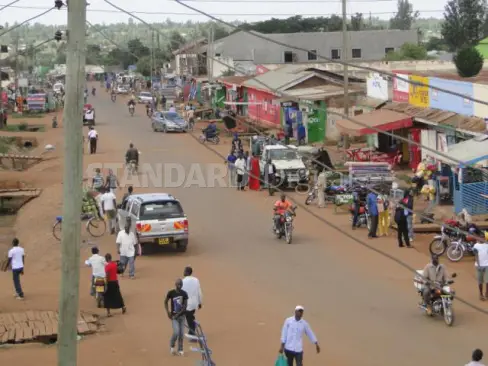
Government and Politics
Local government
Bondo Town is governed by a local council, which is responsible for the management and provision of basic services to the residents. The council plays a vital role in ensuring that the town’s infrastructure is well-maintained, public spaces are clean, and essential services, such as water and sanitation, are accessible to all.
Political representation
Bondo Town falls within the Siaya County and is represented in the county government. The elected representatives, including the governor and members of the county assembly, play a crucial role in advocating for the town’s interests and ensuring proper governance.
Public services
The local government and various authorities in Bondo Town work together to provide essential public services to the community. This includes water and sanitation services, waste management, and maintenance of public infrastructure. Efforts are continuously being made to improve these services and address any challenges that may arise.
Challenges and Future Development
Infrastructure improvements
While Bondo Town has made significant progress in terms of infrastructure development, there are still areas that require improvement. The road network, although extensive, may need upgrades to accommodate increasing traffic and to improve connectivity to surrounding areas. Additionally, efforts can be made to enhance the town’s healthcare facilities and educational institutions to cater to the rising population and provide quality services.
Sustainable development
As the town grows, there is a need to ensure that development is sustainable for both the environment and the community. Emphasizing sustainable agricultural practices, promoting renewable energy sources, and implementing proper waste management systems are some areas that Bondo can focus on to achieve long-term development without compromising future generations’ well-being.
Social issues
Bondo Town, like many communities, faces social challenges that require attention and intervention. These issues may include poverty, access to quality education, and healthcare disparities. Collaborative efforts between the government, non-governmental organizations, and the community can help address these social issues, promoting inclusivity and improving the overall well-being of Bondo’s residents.
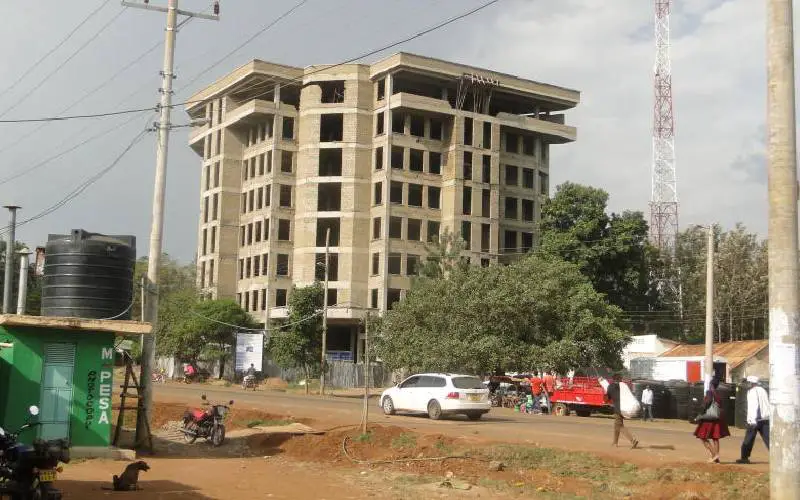
Tourist Attractions
Scenic landscapes
Bondo Town offers breathtaking scenic landscapes, with its hilly terrain and proximity to Lake Victoria. Visitors can enjoy panoramic views of the lake and surrounding greenery, providing a tranquil and serene atmosphere. The town’s enchanting landscapes make it an ideal destination for nature lovers and photographers.
Wildlife reserves
For wildlife enthusiasts, Bondo’s proximity to Ruma National Park presents an opportunity to explore Kenya’s diverse fauna. The national park, located approximately 40 kilometers from Bondo, is home to rare animal species, including the roan antelope and Rothschild giraffe. Visitors can embark on guided safaris to witness these magnificent creatures in their natural habitat.
Local markets
Bondo Town’s market is a vibrant hub of activity, offering visitors an authentic Kenyan shopping experience. The market is bustling with local vendors selling fresh produce, handcrafted souvenirs, traditional clothing, and other locally-made goods. Exploring the market provides an opportunity to interact with locals, learn about their culture, and support small-scale entrepreneurs.
Notable Personalities
Historical figures
Bondo Town has been the birthplace of notable historical figures who have made significant contributions to Kenya’s development. Professor Wangari Maathai, as previously mentioned, was born in Bondo and went on to become a globally recognized environmental activist and the first African woman to win the Nobel Peace Prize. Her legacy continues to inspire generations and has put Bondo Town on the map.
Contemporary public figures
Bondo Town has also produced influential contemporary public figures who have excelled in various fields. These individuals include renowned journalists, artists, educators, and community leaders who have contributed to the town’s growth and leverage their positions to bring positive change to society.
Sports personalities
The sporting talent of Bondo Town has also garnered attention. The town has produced prominent athletes who have represented Kenya on the international stage. These individuals have excelled in disciplines such as athletics, football, and rugby, bringing fame and recognition to Bondo through their sporting achievements.
In conclusion, Bondo Town is a vibrant and growing community located in western Kenya. Its rich cultural heritage, coupled with scenic landscapes and a strong agricultural economy, makes it an attractive destination for residents and tourists alike. As the town continues to develop and address its challenges, Bondo holds the potential to thrive and maintain its unique identity in the ever-changing world.

